David Hamilton has spent his entire career making the climbing dreams of others, and himself, come true, while leading for Jagged Globe and on his own privately-organised expeditions. During that time, he has led a total of 26 expeditions to peaks over 7,500m, including 18 to 8,000m peaks (11 to Everest with eight summits). He has done all of the Seven Summits at least three times (except Denali, which he’s ‘only’ done twice), he’s spent 13 seasons in Antarctica, including 22 ascents of Mt Vinson and five ski trips to the South Pole. His big project for 2019 is to ski the Pyrenees coast to coast in a single winter (taking, according to him, about 80 days). Clearly this is a man who knows how to plan an expedition! We caught up with David between trips to Mexico and the Antarctic…
Where did you grow up? As a child did you spend time in the outdoors with your parents?
I grew up in Glasgow and my parents never took me walking further than the local park.
How did you first get into mountaineering?
In my first week at Glasgow University, in 1978, I was looking for an opportunity to try something new, so I joined the canoe club and the mountaineering club. I thought that canoeing would be my main interest, but on an early trip I capsized in the middle of a loch and had to admit that I couldn’t swim. So I was politely requested not to join any more trips, and ended up spending five years hiking and climbing all over Scotland with the GU Mountaineering Club.
What first drew you to climbing on the world’s highest mountains?
I spent a few summers in the Chamonix valley in the mid 1980s, mostly doing moderate grade classic climbs. After this I was less attracted to climbing harder routes in the Alps than trying the exploratory side of Himalayan climbing. I quit my job in publishing in 1987 to organise my first expedition to the Karakoram along with three friends, and I have managed to make a living out of climbing and travelling ever since. I spent a few summers climbing remote 6,000m peaks in Pakistan and then progressed onto some big 7,000m peaks (Masherbrum, Chogolisa, Tirich Mir). I found that I performed well at altitude and went on to lead expeditions and guide on 8,000m peaks.
Have your motivations changed with age and experience? What keeps you going back to high altitude, year after year?
I enjoy being in the mountains and I enjoy seeing new places. I have been able to plan my work and personal projects to visit just about every significant mountain range in the world. Some peaks are clearly more ‘commercial’ than others and I have climbed these multiple times, but I try and do a few new projects each year as well. When I was younger I was definitely more interested in pushing my limits, but now I am trying to slow down gracefully and share some of the things that I have learnt with others.
Do you still climb for yourself away from work, or do you find that the guiding that you do keeps your appetite for the mountains sated?
I work for about 6–7 months a year, mostly in Antarctica and Nepal. However, less than a quarter of this is actual guiding time on a rope with clients. With high altitude and polar expeditions there is a lot of organisation and logistic work separate from the actual climbing, so I may only do 25–35 guiding days a year. I spend 2–4 months on private ski mountaineering and climbing projects, sometimes doing recce trips for future work projects and sometimes just for fun.
You have been working as an expedition leader for 30 years. How did you get into this line of work?
I did not make a plan to get into guiding, it just happened by accident. I have never been on any courses and have no formal guiding qualifications. As a young guy in my 20s I just wanted to spend as much time exploring the Himalayas as possible, looking for unexplored areas to visit and new peaks to climb. I started taking trekkers to some of these areas and within a few years some of them asked if I would take them climbing. Some of the first peaks I guided were ones that I had made first ascents of in previous years.
How has the expedition industry changed during the time that you’ve been involved
in it?
Clearly there are very many more people climbing and trekking in the Greater Ranges than was the case 30 years ago. And a great many of these are concentrated on a few popular peaks and areas. Overcrowding and poor management is getting worse. We may not all agree with the way that Mont Blanc, the Matterhorn and Denali are managed, but at least we can see the logic behind the rules and regulations. On Kilimanjaro, the Inca Trail and Everest, corruption and incompetence is leading to a poorer visitor experience along with environmental damage and social tensions. There are fewer work opportunities for Western leaders except on the most technically difficult climbs. In many countries local agencies have learnt how to give a professional service, and local guides have picked up reasonable skills from Westerners and are now able to operate on their own.
What do you think makes a good expedition leader, and do you have any words of advice for people embarking on a career in expedition leading?
Young climbers interested in working as guides or expedition leaders can think that the job is mostly about climbing and the clients are a necessary inconvenience. However the longer you are in the job the more you realise that it is predominantly a ‘people’ job and the mountains just form the backdrop. If you don’t like working with people, no matter how good a climber you are, don’t even think about guiding! I have as few counselling qualifications as guiding ones, but sometimes it feels like I do more counselling on an expedition than guiding.
In the Himalayas you work almost exclusively for Jagged Globe – why is that and what in your opinion sets them apart from other companies?
Many mainstream travel companies are moving into the ‘softer’ end of adventure tourism. But there is a world of difference between organising a regular package holiday and sending groups to do challenging activities in remote parts of the world with poor infrastructure. Mountaineering tourism really is an area where the skills of a specialist operator are essential and Jagged Globe have a very professional and ethical approach. When things go wrong in the field (like getting caught up in an earthquake!) it is helpful to know that you have back-up from a very experienced team back at HQ.
Spending weeks away from home in base camps, often with small groups of people who do not know each other well, must be quite challenging – as an expedition leader how do you pull the individuals together into a team?
There is no simple ‘one size fits all’ answer, and every expedition is different. On the whole there are fewer problems than you would think. When a group of people all want to achieve a similar thing and all have put considerable resources of time and money into the project, they can generally get on with each other. It is noticeable that the pressures on team members during an Everest expedition are much greater than on other, shorter, cheaper, less committing trips.
You have led expeditions to Everest 11 times, summiting on eight occasions – what was it that first drew you to Everest, and what keeps drawing you back?
20 years ago I don’t think anyone would have predicted the way Everest would grow in popularity. The possibility of climbing it never occurred to me when I started leading small scale exploratory climbs in the Karakoram. I climbed Gasherbrum I in 1997 and Gasherbrum II in 1998. Jagged Globe needed a leader with 8,000m experience to lead their 1999 Everest expedition and offered the job to me. It was my first time in Nepal! Over the years I have learnt a lot about how the whole Everest ‘scene’ works and I am able to use this knowledge to ensure that my customers have a safe, enjoyable and (hopefully) successful climb. Excluding the natural disasters of 2014 and 2015, my last four Everest expeditions put 28 out of 31 customers on the summit.
How have you seen the way that commercial expeditions on Everest operate change over the years?
This could be the subject of a whole separate article! Firstly, the total number of climbers is rising inexorably and this is causing its own problems. Secondly the ‘quality’ operators (who are also the more expensive) have lost market share to a raft of new, low-cost operators who are flooding the mountain with inexperienced clients and Sherpas. The net result is
that there are more accidents and it is harder for the ‘good’ expeditions to avoid the problems caused by the ‘bad’ ones.
You are one of Britain’s most successful high-altitude mountaineers, yet you are relatively unknown outside of the expedition community. Have you consciously chosen to keep a lower profile than other prominent British Everest guides, and if so, why?
Let’s just say that I have not felt the need to build a public profile. When I am working I try to put the goals and aspirations of the customers above building my own brand. I realise that some guides are reliant on direct bookings and use social media to build their businesses, but I am not in that position and prefer to avoid publicity.
It is often suggested that there are people climbing on Everest who lack the experience to be there, and that overcrowding on the south side is an increasing problem. Do you agree with this, and if so do you think that these are problems that can be solved?
With proper management the issues on Everest could be mitigated. But the chances of this happening are small. Nepal does not have the will or capacity to do this, and no one else has the right to interfere. The numbers themselves are not the main problem, after all many more people climb other popular peaks. It is not even the inexperience of some climbers that is the biggest problem, but the proliferation of budget agencies competing against each other to offer ever cheaper climbs and cutting corners to achieve this.
You have spent 13 seasons working down in the Antarctic, a place that very few climbers get the chance to visit – what’s it like as a place to work and climb in?
Working in Antarctica is like being on another planet. Much of it is flat, but there are several mountain ranges with alpine-scale peaks. Most of the climbers come to scale Mt Vinson (4892m) and I have spent a fair bit of time there, making 22 ascents. However there is plenty of scope for exploratory climbing and skiing projects and zero chance of meeting anyone else.
You’ve spent a lot of time in the Karakoram over the years – after the shootings at Nanga Parbat base camp in 2013 do you think that the mountains there are safe to travel in, and do you have future plans to climb in Pakistan?
Many parts of the world have become more dangerous in recent decades and this includes Pakistan. I was never greatly concerned by the security risk in the 20 years that I worked there but I think there is going to be a noticeable level of risk for the foreseeable future. I was last there in 2009 and hope to return privately in summer 2018. If things seem safe, I may take a commercial group in summer 2019. There is some great climbing to be done in the Karakoram. The organisation and logistics are much more complex than Nepal, but this is more than made up for by the feeling of being in a remote mountain wilderness. As with other parts of the Himalaya, global warming and glacial retreat are sure to be causing problems on the highest peaks in the Karakoram in coming years.
You are a keen ski mountaineer, organising numerous trips to the Alps, Karakoram and to the South Pole. What is it about skiing that you enjoy, and what have been the best ski trips that you have been involved in?
I have been to the top of a lot of peaks and I will probably climb a few more in the coming years, but at present I am more interested in making journeys through mountain landscapes than climbing specific peaks. On the Karakoram trip I wanted to traverse the range without the need for a huge number of porters. So I hit on the idea of going in the early spring when there was a good covering of snow and we were able to pull supplies for 37 days in sleds. This introduced me to the challenges and rewards of long ski journeys and I have spent the last three winters opening a ski route from the Mediterranean coast to Vienna, covering 1,750km and climbing over 100,000m. This has been the toughest thing (physically and mentally) I have ever done, despite the fact that it is in the ‘familiar’ mountains of Europe.
You have previously said that as you age you will lead fewer big expeditions, spending more time on small scale projects. Do you foresee a time when you will step away from the highest peaks, and if so which direction would you instead like to head in?
I have seen too many old guides continue to work beyond their ‘sell by’ date and I do not want to suffer this fate. I have said that I shall quit Everest after 10 ascents or when I get to 60 (whichever comes first). But I am not slowing down just yet. I am planning a coast to coast winter ski trip across the Pyrenees in 2019 that could take around 80 days. So we will see how I feel after that! There are quite a few popular 6,000m peaks in Nepal and South America that I have not climbed. I should be able to lead trips to these for a few more years. Having survived for 30 years without any serious injuries, it is perhaps time to stop doing dangerous things, and look for some safer pursuits. My friend is teaching me how to sail his yacht, and cycling sections of the Tour de France route might be a nice retirement project one year.
Find out more about David Hamilton at www.highadventure.org.uk and www.jagged-globe.co.uk
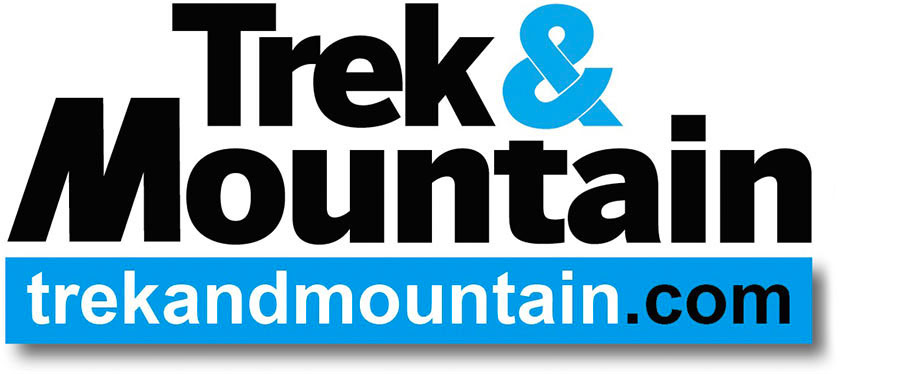
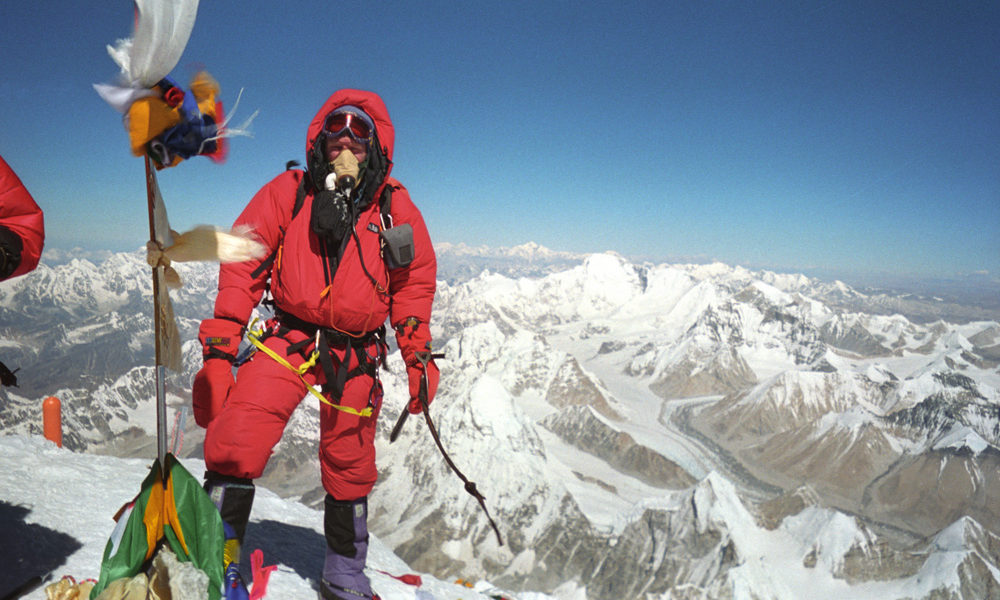




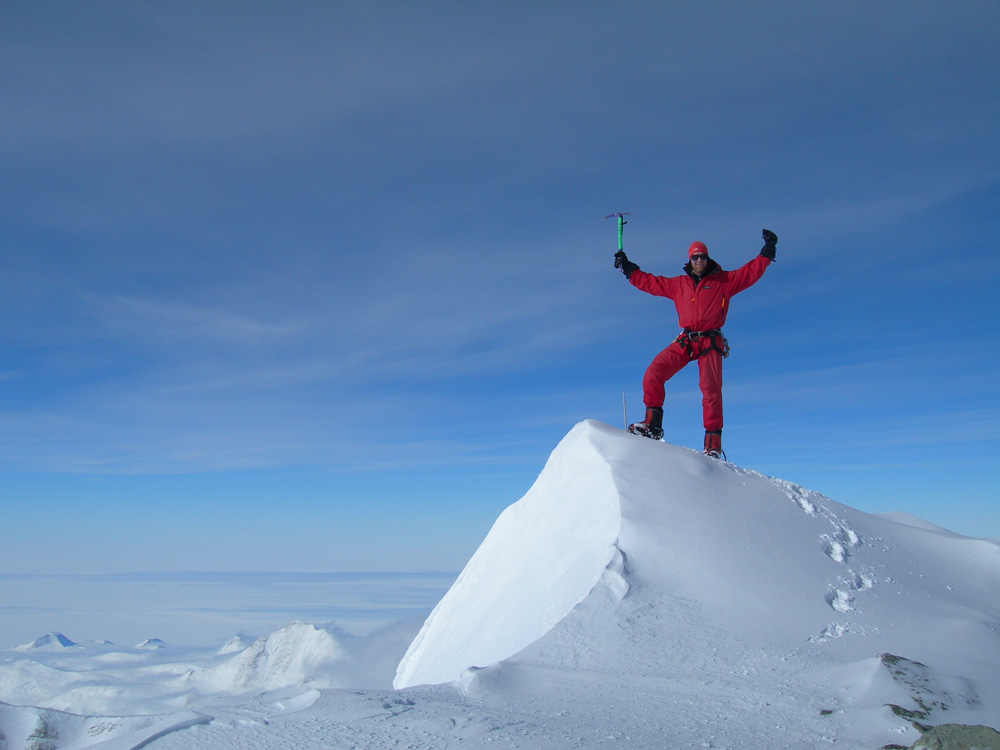
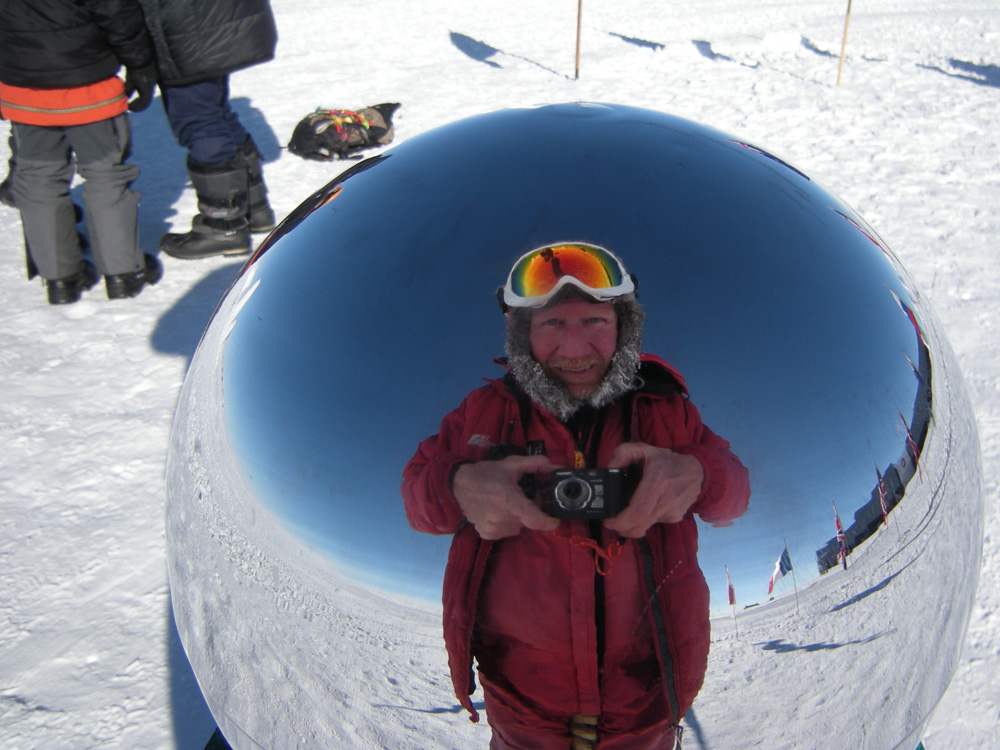
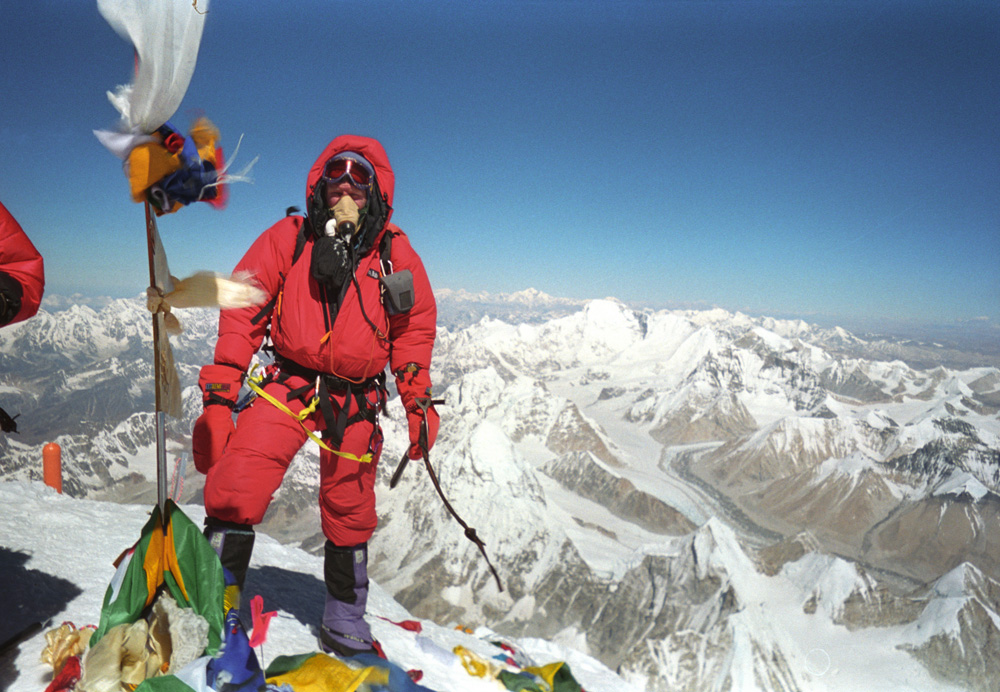


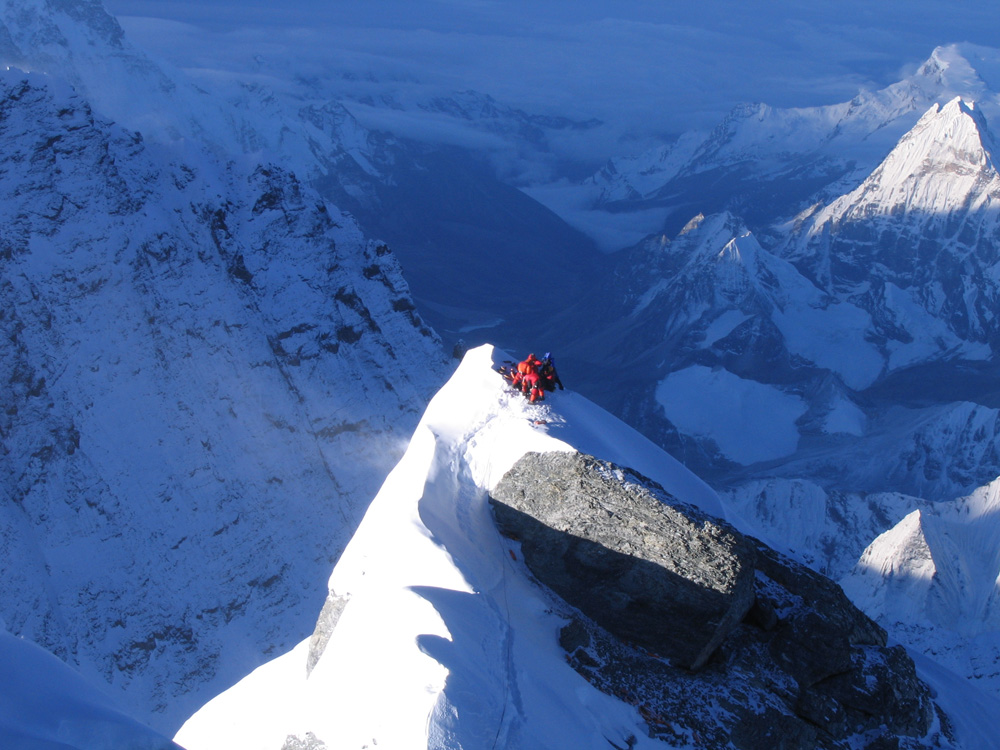
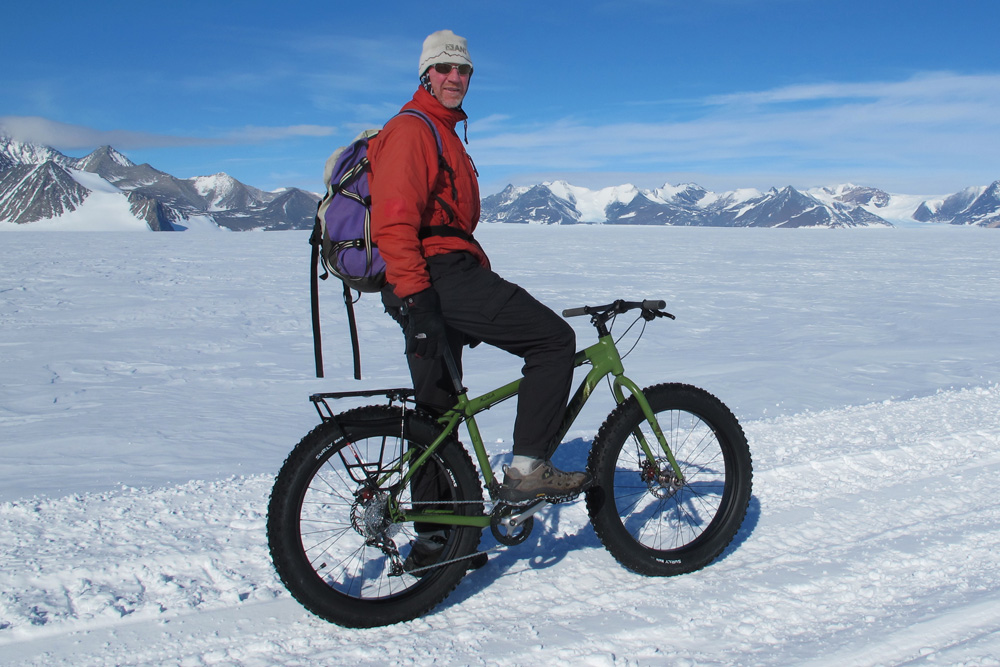
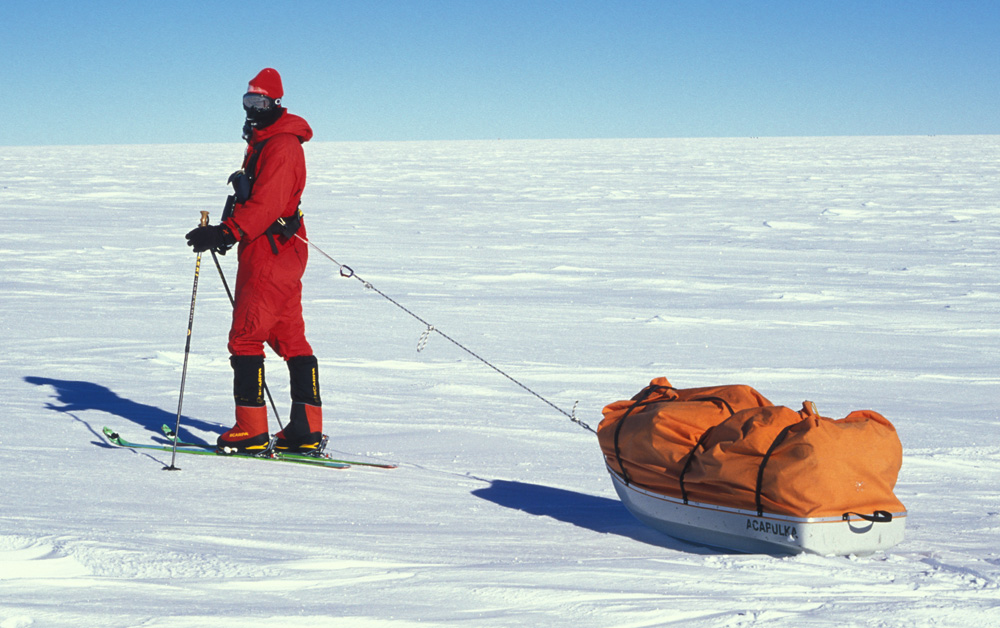
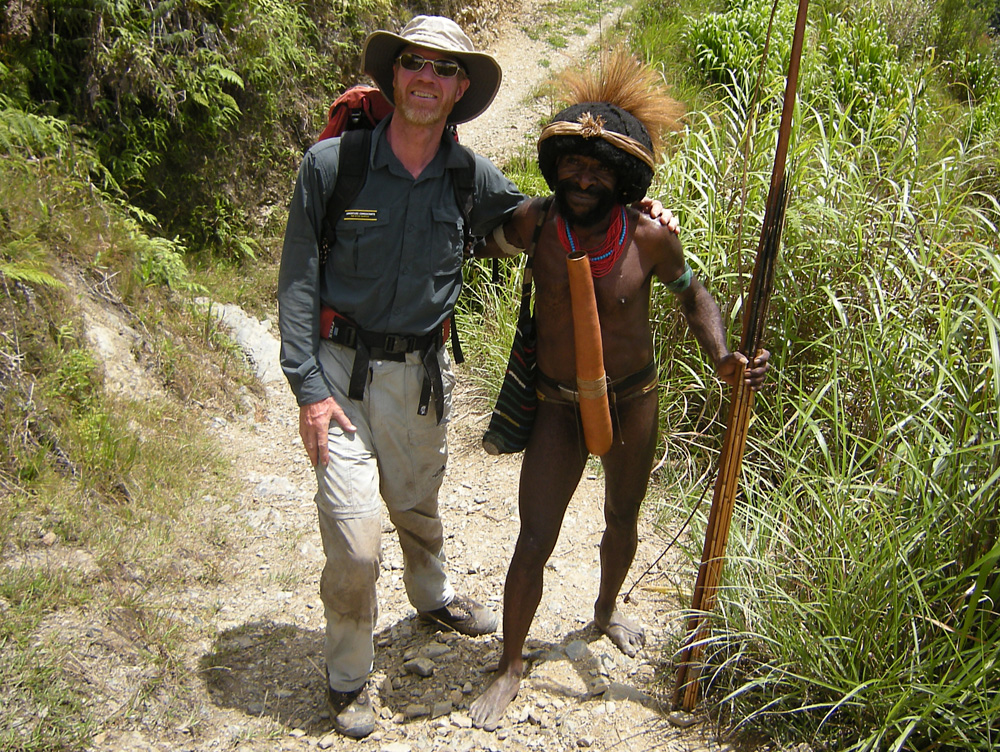
Comments
David is a true child of the mountains and more worthy of recognition than others who are more recognised. I hope he makes his tenth ascent of Everest before he turns 60; but the chances are, even if he does, few will get to hear about it. We should sing for the unsung, just as we should for the silent Sherpas whose toil and sacrifice is so often forgotten.
Yes totally agree Steve – we like to feature the unsung heroes in Trek & Mountain and David is definitely one of those!